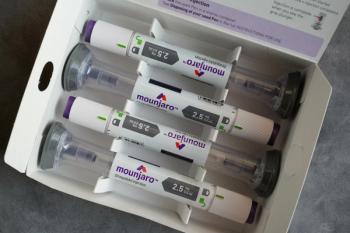
Insurance
Latest News

Latest Videos

Podcasts
CME Content
More News

A webinar held by KFF on July 9 emphasized the immediate effects of the new budget bill, highlighting the impacts on Medicaid and health spending in the next decade.

Families caring for individuals with Duchenne muscular dystrophy (DMD) face significant financial burdens from necessary home and vehicle modifications to enhance quality of life.

Access to and affordability of immune checkpoint inhibitors, which can be lifesaving if patients receive them on time and under optimal circumstances, continue to top the list of reasons behind outcomes disparities for patients who have private insurance vs those who remain uninsured.

From the impact of rising grocery prices to disparities in myeloma outcomes, check out news from the Center on Health Equity & Access this past week.

The decision by the Supreme Court has major implications on which preventive services are required to be covered by insurance companies under the Affordable Care Act.

Several evidence-based health literacy resources may be beneficial in health plan settings to improve organizational health literacy, personal health literacy, and health equity.

Up to 257 million Americans could benefit from these prior authorization reforms that could have cross-market implications on health care plans administered through commercial insurers, Medicare Advantage, and Medicaid.

Widespread noncompliance with federal cost-sharing rules exists, particularly impacting Medicare beneficiaries and patient-preferred prep options, study finds.

The recent FDA approval of lenacapavir is encouraging in its promise of long-term HIV prevention but might not be available for the vast majority of people in the US.

The Choose Medicare Act would establish a Medicare Part E that would give employers and the general public the ability to opt into the program.

Real-world cost barriers and insurance denials contribute to early discontinuation of injectable glucagon-like peptide-1 (GLP-1) receptor agonists, reducing their effectiveness for weight loss, explains Hamlet Gasoyan, PhD, Cleveland Clinic.

Supported value-based care improves prenatal care while reducing neonatal intensive care unit stays, preterm birth rates, low birth weight rates, and costs for mothers and infants.

A private oncology shared savings plan reduced colon cancer treatment costs. Results varied by tumor, with none in breast cancer and mixed effects in lung cancer.

Constance Blunt, MD, medical oncologist, Mary Bird Perkins Cancer Center, discusses the potential consequences of losing free health care screening coverage.

Patients who remained on treatment, especially at higher doses or on tirzepatide, were more likely to achieve clinically meaningful weight loss and improved glycemic control.

Adolescents face significant barriers to obesity medication access, despite a surge in prescriptions. Discover the disparities and potential solutions in obesity care.

Accessing medical and social resources for patients, heavy administrative burden, and lack of data integration are barriers to Medicaid managed care organization care coordinators’ job performance.

David Awad, PharmD, BCOP, says pharmacists play a growing role in managing access, safety, and toxicity for these therapies, ensuring treatments are appropriate and sustainable in real-world oncology practice.

Rural marketplace rating area change in Texas did not increase enrollment but increased share of enrollment in gold plans.

Constance Blunt, MD, medical oncologist, Mary Bird Perkins Cancer Center, shares how one mobile health care initiative is addressing critical barriers to medical access for underserved populations.

A score was developed to measure patient risk from payer utilization management policies and its relationship to real-world US commercial payer utilization management policies.

Payers should consider providing higher reimbursement rates and/or preferred pharmacy networking status for pharmacies that provide chronic medications in blister packs for patients.

Mental health outpatient services decreased in adults aged 65 years and older who were eligible for Medicare.

Decisions made during the first few months of the Trump administration do not inspire confidence in Ali Khawar for further protections for parity in coverage of mental health.

A new State of Drug Access report shows that more than 40% of people living in the US could not afford their prescribed drugs.



















